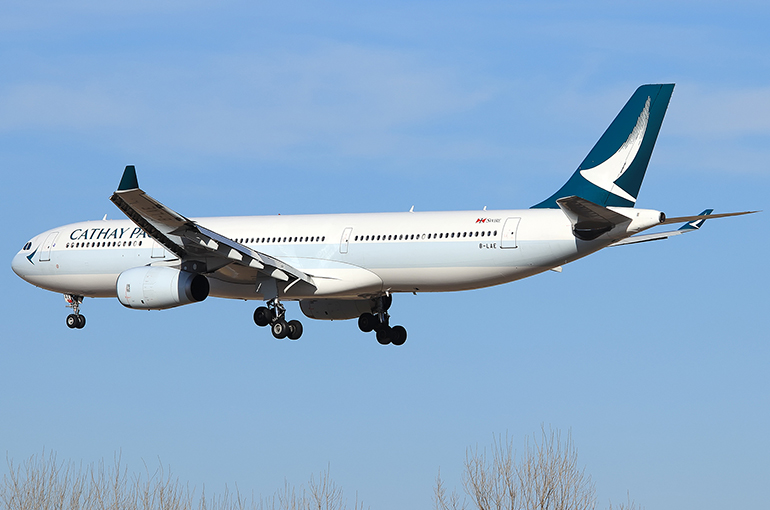 Cathay Pacific’s Profit Falls 15.3% in First Half on Lower Ticket Prices, Load Factor
Cathay Pacific’s Profit Falls 15.3% in First Half on Lower Ticket Prices, Load Factor(Yicai) Aug. 8 -- Cathay Pacific Airways, Hong Kong’s flagship carrier, said profit fell 15.3 percent in the first half from a year ago due to lower ticket prices and a fall in the percentage of passenger seats and cargo space filled on its planes.
Net profit was HKD3.6 billion (USD460 million) in the six months ended June 30, the company’s latest financial report showed yesterday. Revenue rose 13.8 percent to HKD49.6 billion (USD6.4 billion).
Cathay Pacific carried 10.7 million passengers in the first half, up 36 percent from a year earlier, but the passenger load factor fell 4.8 percentage points to 82.4 percent. Cargo tonnage rose 10.4 percent to 719,000 tons, while the load factor dropped 3.9 points to 59.9 percent.
Profit dropped mainly because of “the normalization of ticket prices,” Chairman Patrick Healy said on an earnings conference call. The airline will adopt a "bold new strategy," investing more than HKD100 billion (USD12.8 billion) over the next seven years to continue improving its "fleet, cabin products, lounges, and digital and sustainability leadership," he added.
Shares of Cathay Pacific [HKG: 0293] closed 0.6 percent higher at HKD7.88 (USD1.01) apiece in Hong Kong today. The stock is down 3.8 percent since the end of last year, compared with a 0.9 percent decline in the benchmark Hang Seng Inde
Cathay Pacific will buy 30 Airbus A330-900 aircraft, with the option of purchasing 30 more, it said. They will gradually replace its existing fleet of mid-sized wide-body jets mainly used on regional routes in Asia, and may also be used on long-haul routes in the future, the company added.
Cathay Pacific's passenger flights rebounded to 80 percent of the pre-pandemic level in the second quarter and are expected to fully recover in the first quarter of next year, Healy pointed out. Its workforce will swell by 5,000 to 29,000 by the end of this year, he noted, adding that it will likely fly passengers to 100 destinations by 2025.
Cathay Pacific will continue to increase the number of flights, with supply and demand likely to gradually balance in the future, according to its management.
Editor: Martin Kadiev